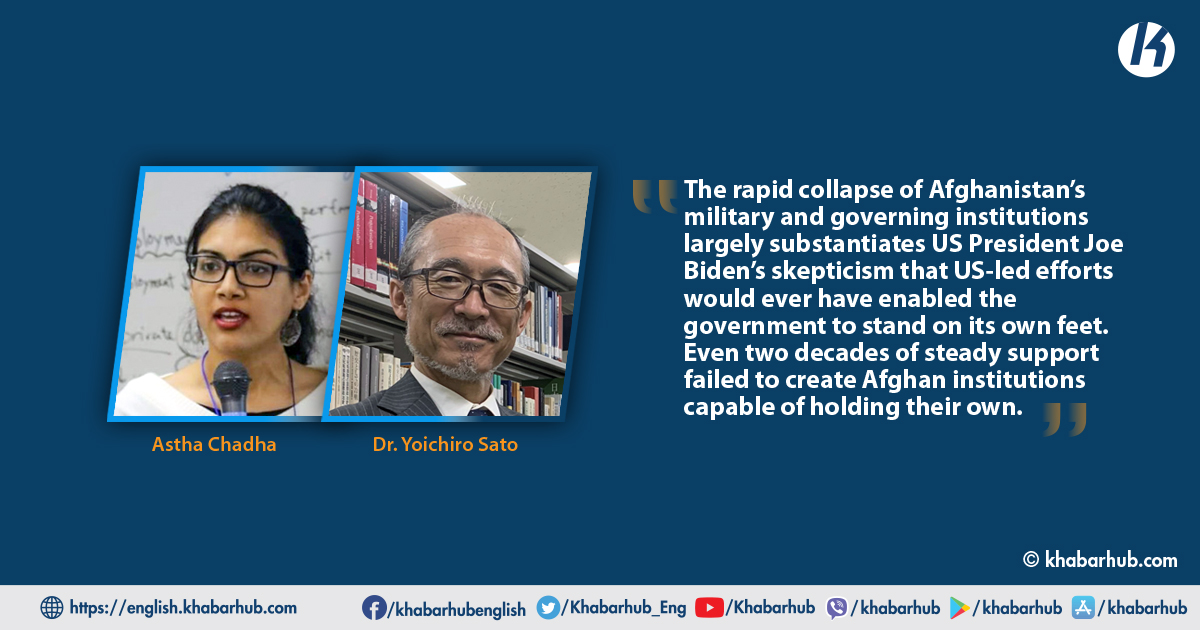The United Nations Security Council (UNSC) Open Debate on 9th August marked a historic moment for India’s Prime Minister Narendra Modi, who became the first Indian leader to serve as the President of the UNSC debate among fifteen heads and representatives of states including the United States, India, China, Russia, France, Mexico, Vietnam, Kenya, Congo, etc.
While serving as the President for August at the UNSC, India undertook the discussion not only surrounding the key threats to maritime security but also urging for a mutually acceptable framework for joint maritime collaboration and development under the title- “Enhancing Maritime Security-A Case for International Cooperation”.
The Indian Ocean is the lifeline of trade in the Indo-Pacific, where New Delhi has strived to secure its presence as the key maritime power.
However, by debating over security issues of the global waterbodies in a universal term, India has highlighted the common challenges including piracy, climate change and terrorism, as well as common rights of all states over the maritime commons that hold several sea lines of communication (SLOCs).
It is notable that four Indian warships recently left ports to head towards South East Asia, the South China Sea and West Pacific for joint exercises with other Indo-Pacific nations in the next few months.
India’s skillful harnessing of discussion on universal maritime norms through its SAGAR vision, while addressing specific regional challenges including counterterrorism has opened a pathway for utilizing the UNSC platform for debates on larger maritime issues as well as for mobilizing collective international response in securing the global maritime domain.
Thus, it was a golden opportunity for New Delhi to embrace its larger role as an emerging global power by highlighting the need for joint effort in the free, open, and inclusive maritime zone- and it did so, successfully, by pointing at maritime disputes, the urgency to adhere to rule of law in maritime commons, and most importantly, with debate culminating into the adoption of the Presidential Statement highlighting the importance of maintaining “international peace and security” by the UNSC.
New Delhi’s free, open, and inclusive Indo-Pacific vision, supported by SAGAR (Security and Growth for All in the Region) initiative, found mention in PM Modi’s five principles towards greater collaboration among maritime nations: Barrier-free maritime trade; International law-based resolution of maritime disputes; Responsible maritime connectivity; Joint action against maritime threats by non-state actors and natural disasters and Preservation of oceans and seas, as well as their environment and resources.
The Quad and Indo-Pacific
The discussion on maritime security at the UNSC did not escape the influence of two key debates in the Indo-Pacific- the South China Sea dispute among China and Southeast Asian nations, and the role of Quad.
Two key pillars of India’s foreign policy in the region have been Act East policy and the SAGAR initiative, under which New Delhi has sought to strengthen trade, maritime security, and defense cooperation with like-minded nations in the Indo-Pacific.
While India’s prime sphere of interest remains in the Indian Ocean, it has amplified its focus on the South China Sea, which is almost completely claimed by China with its nine-dash line- a move protested in South East Asia by the Philippines, Brunei, Malaysia, Taiwan, and Vietnam.
While on the one hand, the Chinese People’s Liberation Army Navy has conducted regular exercises in the region where Beijing has installed weapons systems and constructed artificial islands, increased naval presence by Quad nations (the US, Japan, Australia, India) as well as European powers like France, Germany, and the United Kingdom, has turned the region into a probable center for a large-scale stand-off.
The UNSC debate signaled at the lack of mutually accepted definition and scope of terms like “maritime security” and “freedom of navigation” as well as dimensions of the risks arising from uncoordinated efforts towards achieving them.
Beijing stated that while it considers the presence of nations like the US in the South China Sea as “encroachment”, it views the Quad as an “exclusive” regional strategy in the “Asia Pacific region”, and a reason for the escalation of maritime disputes.
However, the deliberation over the need for maritime initiatives for increased global coordination at the UNSC was a starting point towards the identification and alignment of shared maritime interests.
The debate was also a reaffirmation of the significance of the United Nations Convention on the Law of the Sea (UNCLOS) and Freedom of Navigation, i.e., free, non-exclusive, and unhindered access to seas for all states- at a time when the Indian Navy is undertaking regular deployment of ships made with indigenous technology in the Indo-Pacific.
Leading by Example- the India Way
India highlighted the need for dispute resolution through acceptance and adherence to existing UN mechanisms. Maritime claims over islands and sea resources have increased in the South China Sea, wherein 2016 China-Philippines’ dispute over Spratley islands was brought to the UN-appointed permanent court of arbitration which ruled in favor of the Philippines.
Beijing rejected the ruling, thus setting the stage for the elongated conflict in the region among several nations. India mentioned its own resolution of the maritime dispute with Bangladesh, in which New Delhi accepted the ruling in favor of Dhaka and gave up its claims in the Bay of Bengal with regard to international law.
International law can remain significant only as long as it is respected equally by all nations collectively- a point repeatedly stressed by several nations at the UNSC debate. India can lead by example.
Another Indian proposal for a mutually acceptable framework for joint maritime collaboration and development has been an extension of loans or global aid for development infrastructure.
PM Modi categorically highlighted the need for maritime connectivity through responsible financing of the required infrastructure for enhancing maritime trade. India is not a major aid giver, but as a major aid recipient, its refusal to join BRI rhymes with other Quad members’ suspicion against the Chinese aid as militarily motivated.
New Delhi’s focus on quality implies that there are hidden agenda behind Chinese BRI infrastructure loans, as China’s swapping of the Sri Lankan debt with a 99-year lease of the Hambantota port.
In response to BRI, Japan initiated its own Expanded Partnership for Quality Infrastructure (EPQI) initiative under PM Abe for quality infrastructure, partnered with India for Asia-Africa Growth Corridor (AAGC), and the US announced its B3W (Build Back Better World) initiative under President Biden as an alternative to the BRI.
India’s push for universal norms and standards to ensure financial feasibility and economic sustainability of ambitious infrastructure projects for the recipient countries is timely amid intensifying contests over the development of maritime infrastructure in the Indo-Pacific.
The UNSC debate signaled at the lack of mutually accepted definition and scope of terms like “maritime security” and “freedom of navigation” as well as dimensions of the risks arising from uncoordinated efforts towards achieving them.
Nevertheless, while the India-led UNSC deliberation was only a first step towards joint action on maritime security, the significance of the Presidential Statement is undeniable by its reaffirmation of the international law, which according to the UNCLOS, “sets out the legal framework applicable to activities in the oceans, including countering illicit activities at sea” as well as calling out UN Member States to implement the “International Ship and Port Facility Security Code and Chapter XI – 2 of the International Convention for the Safety of Life at Sea”, for safe shipping and freedom of navigation as per relevant international laws.
Though the US is not a signatory to the UNCLOS, and China has in the past refused to accept the ruling against it by the UN-appointed permanent court of arbitration regarding the South China Sea dispute with the Philippines, their lack of opposition to the Presidential Statement explicitly referring to the UNCLOS and international law, legitimizes the maritime policies of Indo-Pacific nations towards ensuring a rule-based international order in the region through development partnerships and joint naval exercises.
The India-led UNSC debate expanded the scope of securing the seas and oceans beyond the traditional anti-piracy related discussions in the past, to more comprehensive addressing of maritime security issues, which encompassed dimensions of connectivity, infrastructure, marine resources and use of the sea for terrorism- an issue India had to deal with during the 2008 Mumbai terror attacks where the attackers traveled from Pakistan to Mumbai through sea route.
India’s skillful harnessing of discussion on universal maritime norms through its SAGAR vision, while addressing specific regional challenges including counterterrorism has opened a pathway for utilizing the UNSC platform for debates on larger maritime issues as well as for mobilizing collective international response in securing the global maritime domain.
(Astha Chadha is a Ph.D. student at Ritsumeikan Asia Pacific University and a researcher at the Center for Democracy Promotion. Dr. Yoichiro Sato is Professor and Dean (College of Asia Pacific Studies and Graduate School of Asia Pacific Studies) at Ritsumeikan Asia Pacific University)









Comment